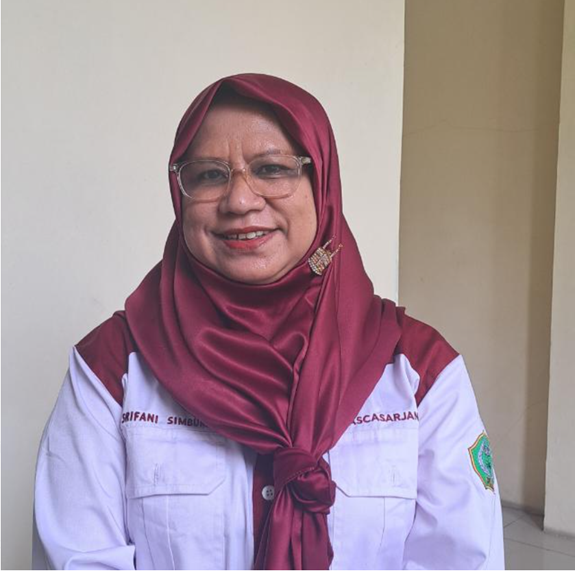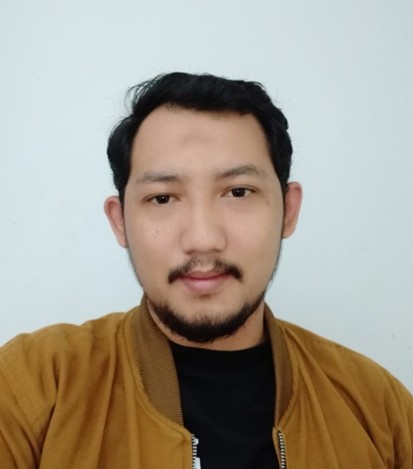Alumni Pesantren Gontor dan Jaringan Islam Global
Abstract
Abstract.,The paper aims to discuss the shading player called “network” of the globalized Islam behind formal Islamic educational institutions. Globalized Islam as Olivier Roy defines is an idea or movement that detach Islam from its geography or cultural territories. Examining alumnae of pesantren Gontor and their position over the contemporary discourse of Islam in Indonesia, the author found that networking with globalized Islam groups has strong influence on their world views. The mutual relationship between Gontor and globalized Islam networks has some impacts on its alumnae. Its exposure to more global Muslim world has prepared its alumnae embrace the globalized Islam identity. More decisive factors are their networks during higher education period out of pesantren. The author uses life experiences as a student and alumni of Gontor as his main research data as well as social network observation. This paper moreover strengthened the existing previous researches that the globalization of Wahabism starting in the 1980s has been very effective in Indonesia. By penetrating the Islamic education institution networks, it has opened doors for more influence on the general mass of Indonesian Muslims
key words: globalized Islam, pesantren, Gontor
Abstrak., Artikel ini mendiskusikan fenomena “Global Islam” salah satu sumber ideologi radikal di Indonesia. Global Islam (Islamisme) sebagaimana didefinisikan oleh Oliver Roy sebagai sebuah ide, praktek atau gerakan yang berusaha memisahkan Islam dari teritori dan kultur di mana ia berada. Mengambil kasus alumni Pondok Modern Gontor dan posisi mereka terhadap wacana Islam kekinian di Indonesia, penulis menemukan bahwa bahkan alumni pesantren yang dikenal luas moderat dalam pandangan-pandangan keagamaannya, tidak dijamin bebas dari pengaruh jaringan “global Islam”. Hubungan antara Gontor dan jejaring global Islam mempunyai dampak terhadap para alumninya. Praktek pengajaran Gontor yang berorientasi internasional menumbuhkan “chemistry” yang kuat di kalangan alumni Gontor dengan jaringan global Islam. Jaringan kerja mereka yang dibangun, utamanya, selama periode pendidkan tinggi, atau tingkat universitas setelah lulus dari pesantren adalah salah satu faktor penentu utama orientasi wacana dan sikap keislaman mereka, selain latar belakang keluarga dll. Melalui metode life history para alumni dan observasi social network mereka, paper ini telah memperkuat studi-studi sebelumnya bahwa globalisasi ideologi Wahabi (global Islam) di Indonesia cukup efektif bekerja. Melalaui programnya di institusi-institusi pendidikan yang berpengaruh, dan hadirnya jaringan mereka telah mempersiapkan “infrastruktur” berkembangnya ideologi Wahabi di masyarakat luas di Indonesia.
Kata Kunci: Islam Global, Pesantren, Gontor
Full Text:
PDFReferences
Amin, Ali. (2010). Konsep Jihad Dalam Media Salaf, Jurnal Iqra, STAIN Manado, Desember.
Anderson, B. (2006). Imagined communities: Reflections on the origin and spread of nationalism. Verso Books.
Appadurai, A. (1986). Theory in anthropology: center and periphery. Comparative Studies in Society and History, 28(2), 356-374.
Bayat, A. (2007). Making Islam democratic: Social movements and the post-Islamist turn. Stanford University Press.
Bayat, A. (Ed.). (2013). Post-Islamism: The Many Faces of Political Islam. OuP uSA.
Piscatori, J. P., & Eickelman, D. F. (Eds.). (1990). Muslim travellers: pilgrimage, migration, and the religious imagination. Routledge.
El Fadl, K. A. (2005). The great theft: Wrestling Islam from the extremists. New York, 26-44.
Fealy, G., & Barton, G. (Eds.). (1996). Nahdlatul Ulama, traditional Islam and modernity in Indonesia (No. 39). Monash Asia Inst.
Fischer, Halal Frontier, London, Routledge, 2013.
Hasan, N. (2006). Laskar jihad (No. 40). SEAP Publications.
Kahin, G. M. (1993). In Memoriam: Mohammad Natsir (1907--1993).
Koentjaraningrat. (1957). A preliminary description of the Javanese kinship system (Vol. 4). Yale University, Southeast Asia Studies.
Kovacs, A. (2014). Saudi Arabia exporting Salafi education and radicalizing Indonesia’s Muslims. GIGA Focus International Edition English, (07).
Lindsey, T., & Steiner, K. (2012). Islam, Law and the State in Southeast Asia: Malaysia and Brunei: Volume 3. Islam, Law and the State in Southeast Asia: Malaysia and Brunei, 3.
Machmudi, Y. (2008). Islamising Indonesia: the rise of Jemaah Tarbiyah and the prosperous justice party (PKS). Anu E Press.
Mahendra, Y. I. (1995). Combining Activism and Intellectualism: the Biography of Mohammad Natsir (1908-1993). Studia islamika, 2(1).
Mandaville, P. G. (2003). Transnational Muslim politics: Reimagining the umma. Routledge.
Mandaville, P. (2010). Global political islam. Routledge.
Roy, O. (2004). Globalized Islam: The search for a new ummah. Columbia University Press.
Tibi, B. (2002). The challenge of fundamentalism: Political Islam and the new world disorder (Vol. 9). Univ of California Press.
Van Bruinessen, M. (2006). Divergent paths from Gontor: Muslim educational reform and the travails of pluralism in Indonesia. On the Edge of Many Worlds/Festschrif Karel A. Steenbrink/. Zoetermeer: Uitgeverij Meinema, 191-201.
Vertovec, Steven. "Transnationalism and identity." Journal of Ethnic and Migration studies 27.4 (2001): 573-582.
Vertovec, S. (1999). Conceiving and researching transnationalism. Ethnic and racial studies, 22(2), 447-462.
Woodward, M., Rohmaniya, I., Amin, A., Davulvu, H., & Coleman, D. (2011, November). Modeling Muslim social movements: A case study of Indonesian Salafism. In 10th Annual Conference on Islamic Studies, Banjarmasin, Indonesia(pp. 1-3).
Woodward, M. R. (2001). Indonesia, Islam, and the prospect for democracy. SAIS Review, 21(2), 29-37.
http://www.panjimas.com/news/2015/05/19/baca-al-quran-dengan-langgam-jawa-adian-husaini-bener-ning-ora-pener/,
http://plus.kapanlagi.com/alquran-dibaca-dengan-langgam-jawa-fpi-tuntut-jokowi-lengser-7580f5.html, akses 21 Januri 2017
http://www.kawalpemilu.org/#0.42385.42570.42683 , akses bulan Januari 2017.
HALAQAH PUTM-SESI II Model Pendidikan Ulama https://www.youtube.com/watch?v=c6W9NuGOcuM&t=1447s,
https://imambachtiar.wordpress.com/2012/03/21/gontor-dari-dalam-6-dawam-raharjo-nur-cholis-madjid-dan-kyai-zarkasyi/ akses 25 januari 2017
https://id.wikipedia.org/wiki/Adian_Husaini
DOI: http://dx.doi.org/10.30984/j.v3i2.862
Article Metrics
Abstract view : 3423 timesPDF - 978 times
Refbacks
- There are currently no refbacks.

All publication by
JIEP: Journal of Islamic Education Policy'
are licensed under a
Creative Commons Attribution-NonCommercial-ShareAlike 4.0 International License
.










